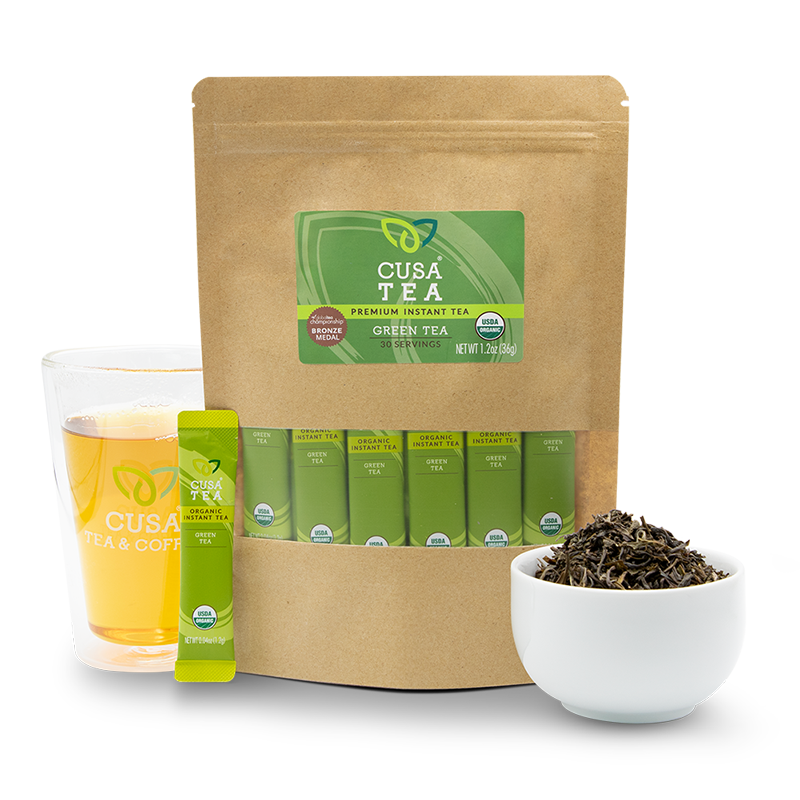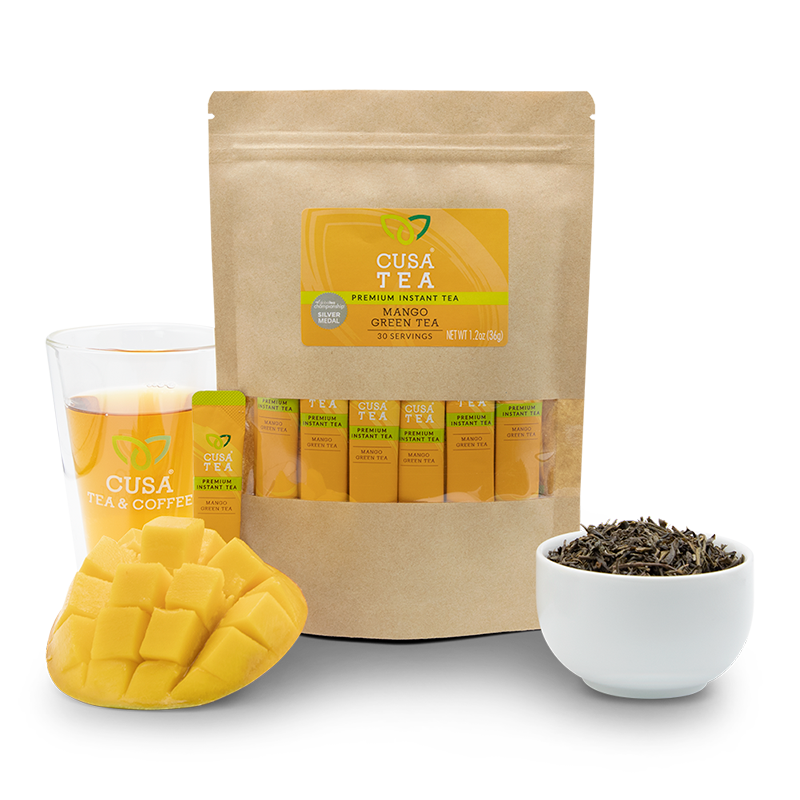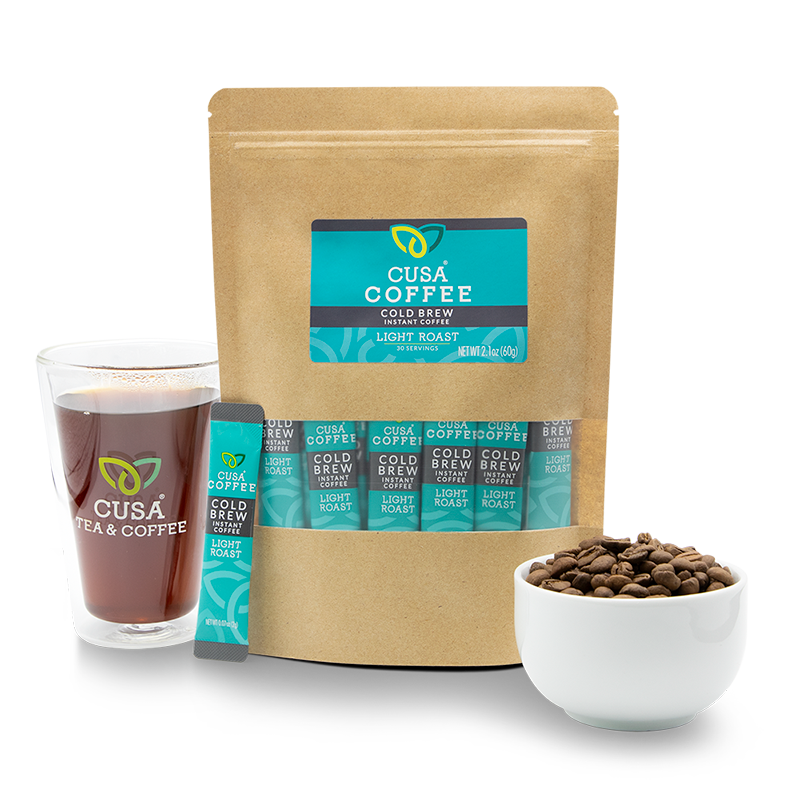February is American Heart Month and we want to help keep your ticker as healthy as possible! Because Cusa Tea and Coffee focuses on selling clean and natural beverages free of any unnecessary muck, the fact that our innovative cold brew and gentle dehydration technology allows us to retain the full healthful benefits of tea and coffee is a big deal to us. And in honor of Heart Month, we want to turn our own spotlight to the impact tea and coffee can have on heart health.
First and foremost, we must acknowledge that, like with many beverages, the impacts of tea and coffee on health are debated. However, it’s also important to keep in mind that what has the most influence on heart health is several factors combined, otherwise known as a “healthy lifestyle”. They include not smoking, maintaining a healthy weight, getting at least 150 minutes of moderate-intensity exercise (like walking) a week, and getting regular health checkups. [1]

No pill, tonic, food or beverage alone can stave off the bad effects of not adhering to a healthy lifestyle, as much as we wish they could. And as with most things in life, too much of something can be harmful. So, we’ll take a closer look at the empirical, proven benefits of tea and coffee for heart health for individuals who try to maintain a healthy lifestyle and consume tea and coffee in moderation.
Let’s start with tea. Black and green tea may reduce the risk of both coronary heart disease and stroke by between 10% to 20%. [2] Tea is naturally lower in caffeine, so negative effects associated with high caffeine intake tend to be less of a concern with tea. When it comes to coffee, it’s more important to keep drinking habits in moderation and not guzzle several cups a day. Not only can a high daily intake of caffeine be harmful, but also coffee is made from the nut of a fruit, with an array of lipids (oils) that can be harmful in great quantities.
Consuming too many lipids can raise cholesterol, which is not good for heart health. [2] When it comes to oils in coffee, not all brewing methods are the same – boiled coffee or coffee made with a Fresh press has more oil than filtered or drip coffee. Because we don’t use heat to brew our coffee, very little oil makes it into the brew, and a triple filtration step further prevents oils from getting into our dehydrated powder. Have you ever noticed that you can see a sheen on boiled or pressed coffee, but can’t see one with Cusa Coffee? Fewer lipids!
Tea and coffee share some things in common when it comes to effect on heart health. According to Food and Function by the Royal Society of Chemistry, tea and coffee protection includes “the regulation of vascular tone, … improved glucose metabolism, increased reverse cholesterol transport and inhibition of foam cell formation, inhibition of oxidative stress, immunomodulation and effects on platelet function (adhesion and activation, aggregation and clotting).” [2]

In Japan, a country with a long tea history, one study found that “consumption of coffee, green tea and oolong tea and total caffeine intake was associated with a reduced risk of mortality from CVD” when compared to non-drinkers of these beverages. [3]
In fact, the American Heart Association, the very organization that came up with American Heart Month, says that those who drink two cups of coffee (with caffeine) per day might have a 30% lower risk of heart failure. [4]
Just as it’s important to maintain a healthy lifestyle, it’s important to remember that mixing milk, cream and sugar with tea and coffee changes its healthful benefits. You won’t find a heart expert out there who recommends 3-5 frappuccinos or macchiatos per day; all that excess cream and sugar outweighs any healthful benefits of the coffee in them. That’s why we’re mighty proud of all the cream and sugar coffee addicts out there who think Cusa Coffee is the first coffee they’ve had that’s smooth enough to drink without anything added.
For some further reading on the benefits of tea and coffee, check out our articles. We’ve spent some time going into them in the past, particularly in 5 Benefits of Coffee, What are Mycotoxins?, Why Cold-Brew is Better, and Tea: Antioxidant Powerhouse.
Sources:
1https://www.heart.org/en/around-the-aha/february-is-american-heart-month
2https://pubmed.ncbi.nlm.nih.gov/22456725/#:~:text=Tea%20and%20coffee%20have%20been,by%20between%2010%20and%2020%25
3https://pubmed.ncbi.nlm.nih.gov/19996359/
4https://www.heart.org/en/news/2021/02/09/coffee-may-help-reduce-risk-for-heart-failure








